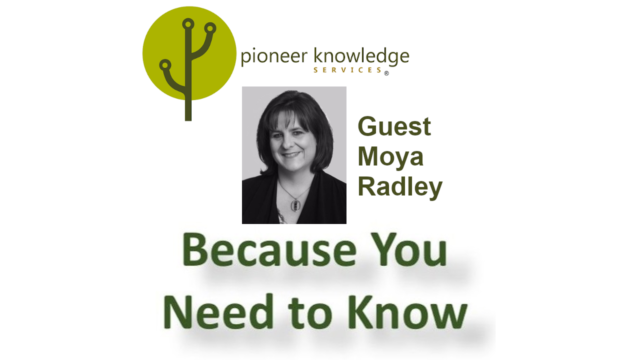
Balancing organisational remembering and forgetting
To date, knowledge has largely been seen as something positive that can be beneficially managed. However, in a recent article we reported on a paper in which authors Susanne Durst and Malgorzata Zieba argue that organisations also need to consider knowledge risks. This is because of the emerging number of these risks and the growing complexity of organisational environments. Following on from the Durst and Zieba paper, we’ve also discussed another paper that reviews the literature in regard to one of the identified knowledge risks – knowledge hoarding.
A new conference paper1 focuses on two more of the knowledge risks – forgetting and unlearning. Durst and Zieba describe these as:
- Forgetting – can be both accidental (due to bad memory) or intentional (trying to avoid bad habits)
- Unlearning – a type of deliberate forgetting which involves a conscious process of giving up and abandoning knowledge, values, and/or practices which are deemed to have become outdated in an organisation.
The author of the new conference paper, Ana Aleksić Mirić, alerts that while much of the existing research in regard to organisational knowledge is focused on organisational learning per se, real-life practice teaches us that companies don’t just learn, they also forget. She advises that an easy way to understand the process of organisational forgetting is to compare it to what happens with individuals. Either intentionally or unintentionally, people forget. The things that are forgotten are usually regarded as less important or unimportant, but eventually, even very important things won’t be remembered.
Organisational forgetting can be either unintentional or intentional.
Unintentional forgetting is where important knowledge is lost from the memory of the organisation, and so not available when it is potentially needed in the future. For example, the forgetting of an organisational memory of how to effectively deal with a particular problem that is occasionally experienced. The loss of this organisational memory means that when the problem does reoccur it will potentially create a serious crisis that could otherwise have been quickly addressed. The consequences of this can be extremely serious, such as a loss of client or consumer confidence and the consumption of a large amount of resources to reinvent a solution.
Intentional forgetting involves the deliberate unlearning of old patterns of behaviour and previously acquired knowledge, so that new knowledge and skills can be acquired and put into practice. This can be necessary when an organisation alters the way in which it does business, for example when offering new products or services or entering different markets, or when the external environment shifts. The organisational response needs to involve both behavioral and cognitive changes.
Mirić argues that this organisational forgetting is not the opposite of organisational learning, because the deliberate forgetting (unlearning) aids learning:
Having explained learning as a process, I argue that organizational forgetting is not on the opposite side of organizational learning. If intentionally led and carefully managed, organizational forgetting can be one of [the] organizational processes that contributes to organizational health and enhances further learning; through forgetting, organizations clean unnecessary and outdated ways of thinking and behaviour, and makes room for a new relevant knowledge to be planted.
She concludes by stating that intentional organisational forgetting can be readily facilitated within the existing knowledge management functions and activities of the organisation. This might be true, but as Mirić herself has warned, we don’t yet have enough evidence to confidently draw that conclusion. Very little of the existing research addresses organisational forgetting – more research is needed.
Header image source: geralt on Pixabay, Public Domain.
Reference:
- Mirić, A. A. (2018). Remember Not to Forget: Importance of Balancing Organizational Remembering and Forgetting. Contemporary Issues in Economics, Business and Management, 9. ↩
Also published on Medium.






